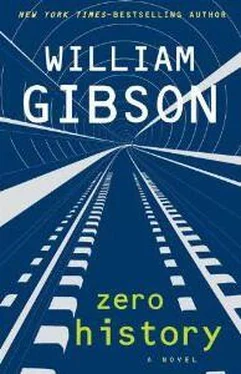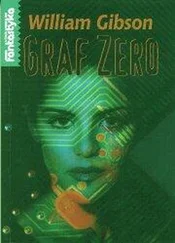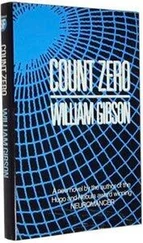William Gibson - Zero history
Здесь есть возможность читать онлайн «William Gibson - Zero history» весь текст электронной книги совершенно бесплатно (целиком полную версию без сокращений). В некоторых случаях можно слушать аудио, скачать через торрент в формате fb2 и присутствует краткое содержание. Жанр: Фантастика и фэнтези, на чешском языке. Описание произведения, (предисловие) а так же отзывы посетителей доступны на портале библиотеки ЛибКат.
- Название:Zero history
- Автор:
- Жанр:
- Год:неизвестен
- ISBN:нет данных
- Рейтинг книги:4 / 5. Голосов: 1
-
Избранное:Добавить в избранное
- Отзывы:
-
Ваша оценка:
- 80
- 1
- 2
- 3
- 4
- 5
Zero history: краткое содержание, описание и аннотация
Предлагаем к чтению аннотацию, описание, краткое содержание или предисловие (зависит от того, что написал сам автор книги «Zero history»). Если вы не нашли необходимую информацию о книге — напишите в комментариях, мы постараемся отыскать её.
Zero history — читать онлайн бесплатно полную книгу (весь текст) целиком
Ниже представлен текст книги, разбитый по страницам. Система сохранения места последней прочитанной страницы, позволяет с удобством читать онлайн бесплатно книгу «Zero history», без необходимости каждый раз заново искать на чём Вы остановились. Поставьте закладку, и сможете в любой момент перейти на страницу, на которой закончили чтение.
Интервал:
Закладка:
He shrugged. “Where’d you say you got the Hounds?”
“It belongs to someone I know.”
“Where’d they get it, then?”
“I don’t know. Someone told me it was a ‘secret brand.’ ”
“Not when you know,” he said. “Just very hard to find. Thin on the fucking ground, your Gabriel Hounds.”
“Is he starting to talk about rerecording the bed tracks?” She guessed that if she tried to change the subject, he might resist, and she could go along with that, not seem too interested.
Clammy shivered. Nodded.
“Has he talked about doing it in Tucson?”
Clammy frowned, forehead masked behind black cashmere. “Last night.” He peered out, through plate glass, at Golden Square, deserted in the rain.
“There’s a place there,” she said. “One of his secrets. Do it. If he wants to go back later for the overdubs, do it.”
“So why’s he breaking my balls now, remixing?”
“It’s his process,” she said.
Clammy rolled his eyes, to heaven or his black cap, then back to her. “You ask your friend where they got the Hounds?”
“Not yet,” she said.
He turned on his stool, swung his leg out from beneath the counter. “Hounds,” he said. The jeans he wore were black, very narrow. “Twenty-ounce,” he said. “Brutal heavy.”
“Slubby?”
“You blind?”
“Where did you find them?”
“Melbourne. Girl I met, knew where and when.”
“A store?”
“Never in shops,” he said. “Except secondhand, and that’s not likely.”
“I tried Google,” she said. “A Mary Stewart book, a band, CD by someone else…”
“Go further, on Google, and there’s eBay,” he said.
“Hounds on eBay?”
“All fake. Almost all. Chinese fakes.”
“The Chinese are faking it?”
“Chinese are faking everything,” Clammy said. “You get a real Hounds piece on eBay, someone makes an offer high enough to stop it. Never seen an auction for real Hounds run off.”
“It’s an Australian brand?”
He looked disgusted, which was how he’d looked in whatever few previous brief conversations they’d had. “Fuck no,” he said, “it’s Hounds .”
“Tell me about it, Clammy,” she said. “I need to know.”
6. AFTER THE GYRATORY
The Neo’s plastic case reminded Milgrim of one of those electronic stud-finders they sold in hardware stores, its shape simultaneously simple and clumsy, awkward against his ear.
“Gussets?” demanded Rausch, on the Neo.
“He said they needed them. One in each inner thigh.”
“What are they?”
“An extra piece of material, between two seams. Usually triangular.”
“How do you know that?”
Milgrim considered. “I like details,” he said.
“What did he look like?”
“Football player,” Milgrim said. “With a sort of mullet.”
“A what?”
“I have to go,” Milgrim said. “We’re at the Hanger Lane Gyratory System.”
“Wha-”
Milgrim clicked off.
Pocketing the Neo, he brought himself more upright, feeling the Jankel-armored, four-doored, short-bedded Toyota Hilux’s ferocious engine-transplant gather itself for their plunge into England’s most famously intimidating roundabout, seven lanes of fiercely determined traffic.
According to Aldous, the Hilux’s other driver, this route from Heathrow, decidedly nonoptimal, was part of his job requirement, meant to maintain certain skills one was otherwise unable to practice in London traffic.
Braced for the discomfort of rapid acceleration on run-flat tires, from a standing stop, Milgrim glanced down, to his right, glimpsing the pinstriped thigh of the driver in the adjacent lane, and missed seeing the light change.
Then they were in it, fully gyratory, the driver expertly and repeatedly inserting the Hilux’s secretly massive but oddly skittish bulk sideways, it seemed, into absurdly tiny lane-change gaps.
Milgrim had no idea why he’d come to enjoy this so much. Prior to his stay in Basel, he’d have kept his eyes shut for the whole thing; if he’d been expecting it, he’d have upped his medication. But now, grinning, he sat with the red cardboard tube upright between his legs, holding it with the fingertips of both hands, as though it were a joystick.
Then they were out of it. He sighed, deeply if mysteriously satisfied, and felt the driver’s glance.
This driver wasn’t as talkative as Aldous, but that might have something to do with the urine test. Aldous had never had to administer the urine test, or drive back to London with a vial cooling in his overcoat pocket.
Aldous had told Milgrim all about the Toyota Hilux, about the Jankel armor and the bulletproof glass and the run-flats. “Cartel grade,” Aldous had assured him, and unusual for London, at least as far as a silver-gray pickup truck went. Milgrim hadn’t asked why these particular features had been deemed necessary, but he suspected that that might be a sensitive area.
Eventually, now, after a much less entertaining stretch of the journey, it became Euston Road, and the beginnings of his idea of actual London.
Like entering a game, a layout, something flat and mazed, arbitrarily but fractally constructed from beautifully detailed but somehow unreal buildings, its order perhaps shuffled since the last time he’d been here. The pixels that comprised it were familiar, but it remained only provisionally mapped, a protean territory, a box of tricks, some possibly even benign.
The run-flats were nasty on mixed pavement, worse on cobbles. He sat back and held on to the red cardboard tube as the driver began taking an endless series of corners, keeping roughly parallel, Milgrim guessed, to Tottenham Court Road. Headed for the heart of town, and Soho.
›››
Rausch, his translucently short black hair looking like something sprayed from a nozzle, was waiting for them in front of Blue Ant, the driver having phoned ahead as they’d crept along through the traffic on Beak Street. Rausch held a magazine above his head, to ward off the drizzle. He looked characteristically disheveled, but in his own peculiar way. Everything about his personal presentation was intended to convey an effortless concision, but nothing quite did. His tight black suit was wrinkled, bagged at the knees, and in extending his arm above his head to hold the magazine, he’d untucked one side of his white shirt. His glasses, whose frames came equipped with their own squint, would be in need of cleaning.
“Thanks,” Milgrim said when the driver pushed a button, unlocking the passenger-side door. The driver said nothing. They were behind a black cab, not quite there yet.
When Milgrim opened the door, it swung out with an alarming, weight-driven velocity, to be stopped by a short pair of heavy nylon straps that prevented it from tearing itself off its hinges. He climbed down, with the red tube and his bag, briefly glimpsing the red tank of fire-extinguishing foam beneath the passenger seat, and tried to bump the door shut with his shoulder. “Ouch,” he said. He put the bag down, tucked the tube under his arm, and used the other hand to heave the armored door shut.
Rausch was bending to pick up his bag.
“He’s got the pee,” Milgrim said, indicating the truck.
Rausch straightened, grimacing fastidiously. “Yes. He takes it to the lab.”
Milgrim nodded, looking around at the pedestrian traffic, which tended to interest him in Soho.
“They’re waiting,” said Rausch.
Milgrim followed him into Blue Ant, Rausch holding a security badge over a metal plate to unlock the door, a single sheet of greenish two-inch-thick glass.
The lobby here suggested some combination of extremely expensive private art school and government defense establishment, though when he thought about it, he’d never been in either. There was a massive central chandelier, constructed from thousands of pairs of discarded prescription eyeglasses, that contributed very handsomely to the art school part, but the Pentagon part (or would it be Whitehall?) was harder to pin down. Half a dozen large plasma screens constantly showed the latest house product, mostly European and Japanese automobile commercials with production budgets dwarfing those of many feature films, while beneath these moved people wearing badges like the one Rausch had used to open the door. These were worn around the neck, on lanyards in various shades, some bearing the repeated logos of various brands or projects. There was a smell of exceptionally good coffee.
Читать дальшеИнтервал:
Закладка:
Похожие книги на «Zero history»
Представляем Вашему вниманию похожие книги на «Zero history» списком для выбора. Мы отобрали схожую по названию и смыслу литературу в надежде предоставить читателям больше вариантов отыскать новые, интересные, ещё непрочитанные произведения.
Обсуждение, отзывы о книге «Zero history» и просто собственные мнения читателей. Оставьте ваши комментарии, напишите, что Вы думаете о произведении, его смысле или главных героях. Укажите что конкретно понравилось, а что нет, и почему Вы так считаете.











